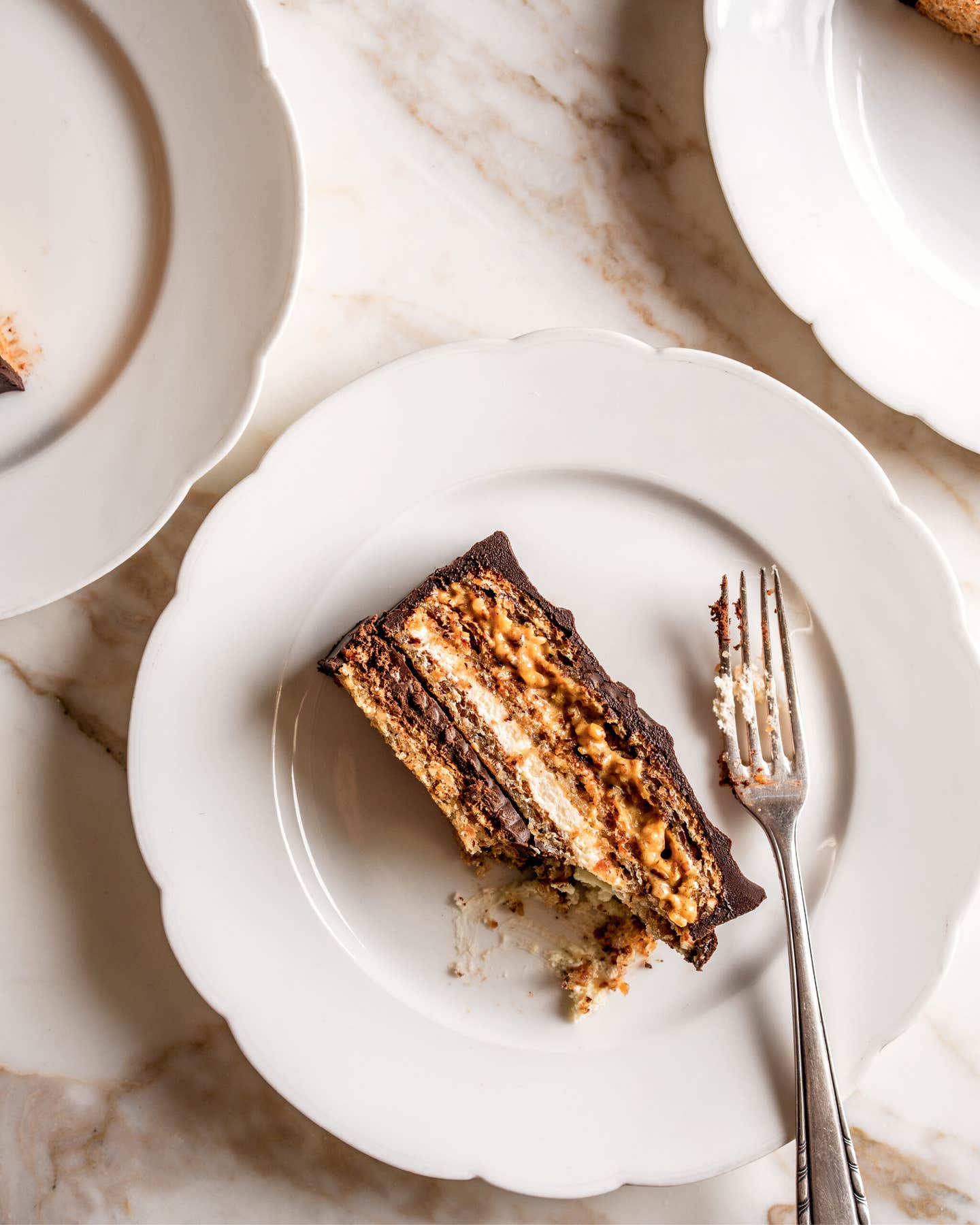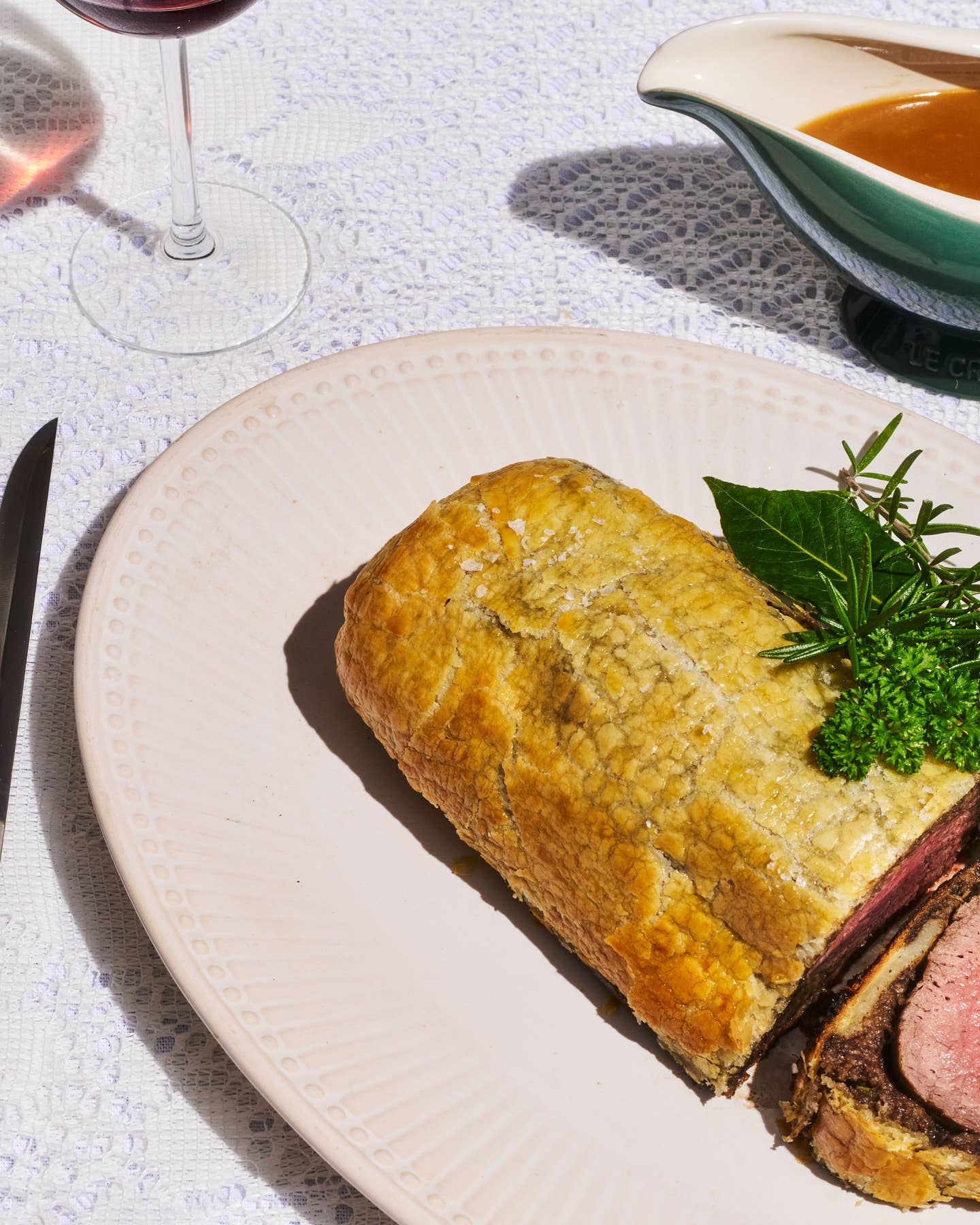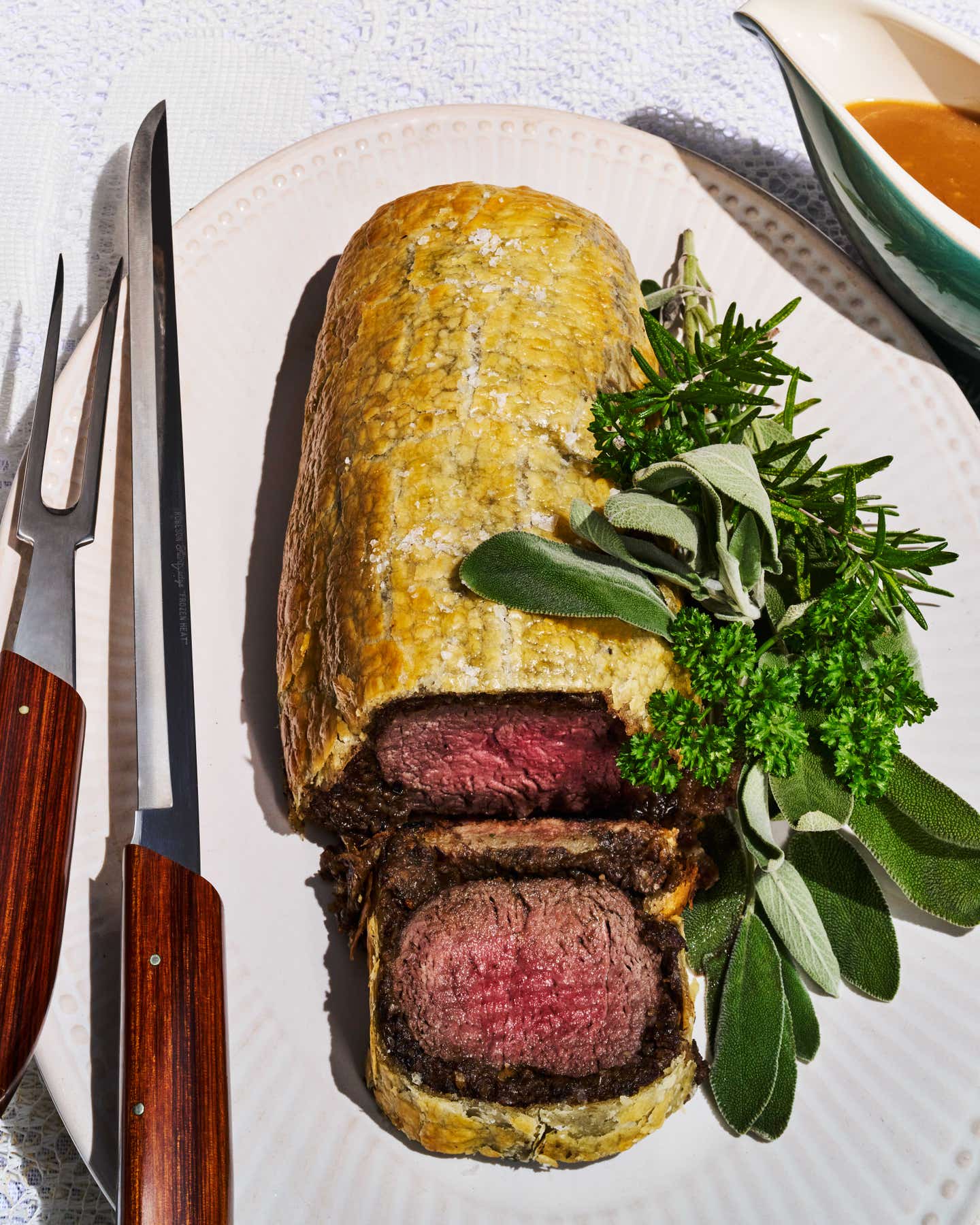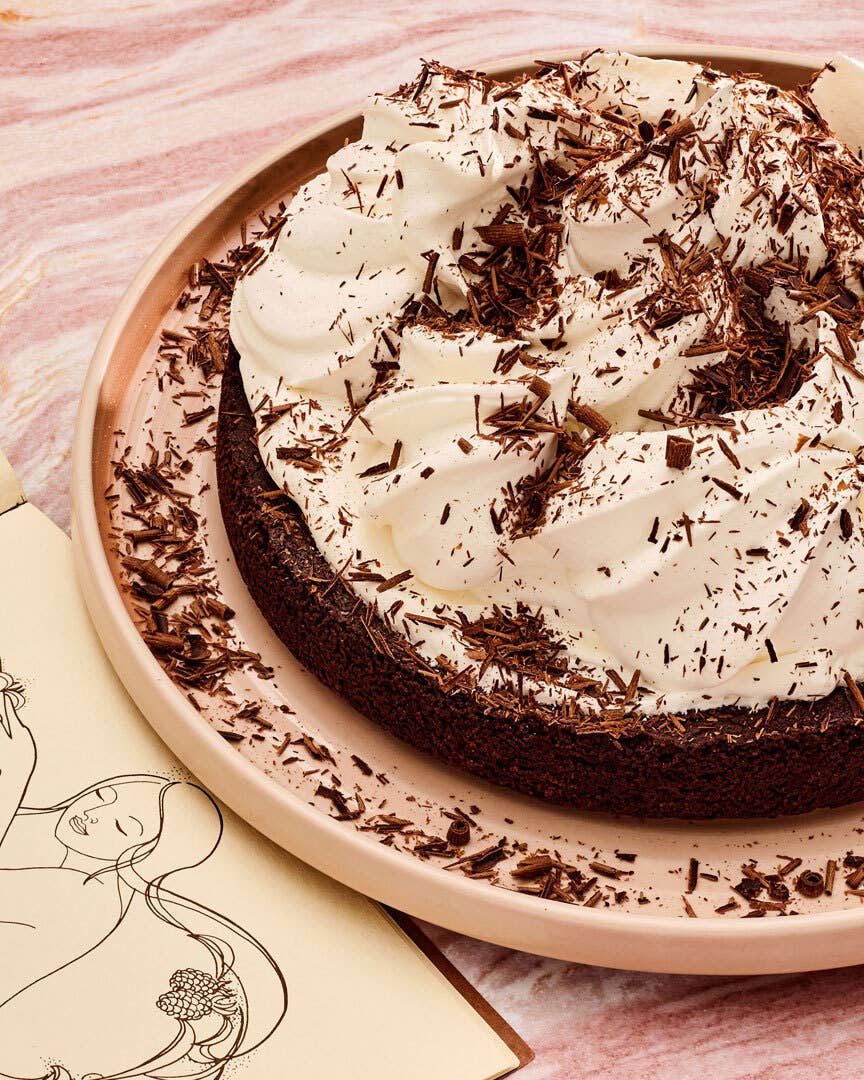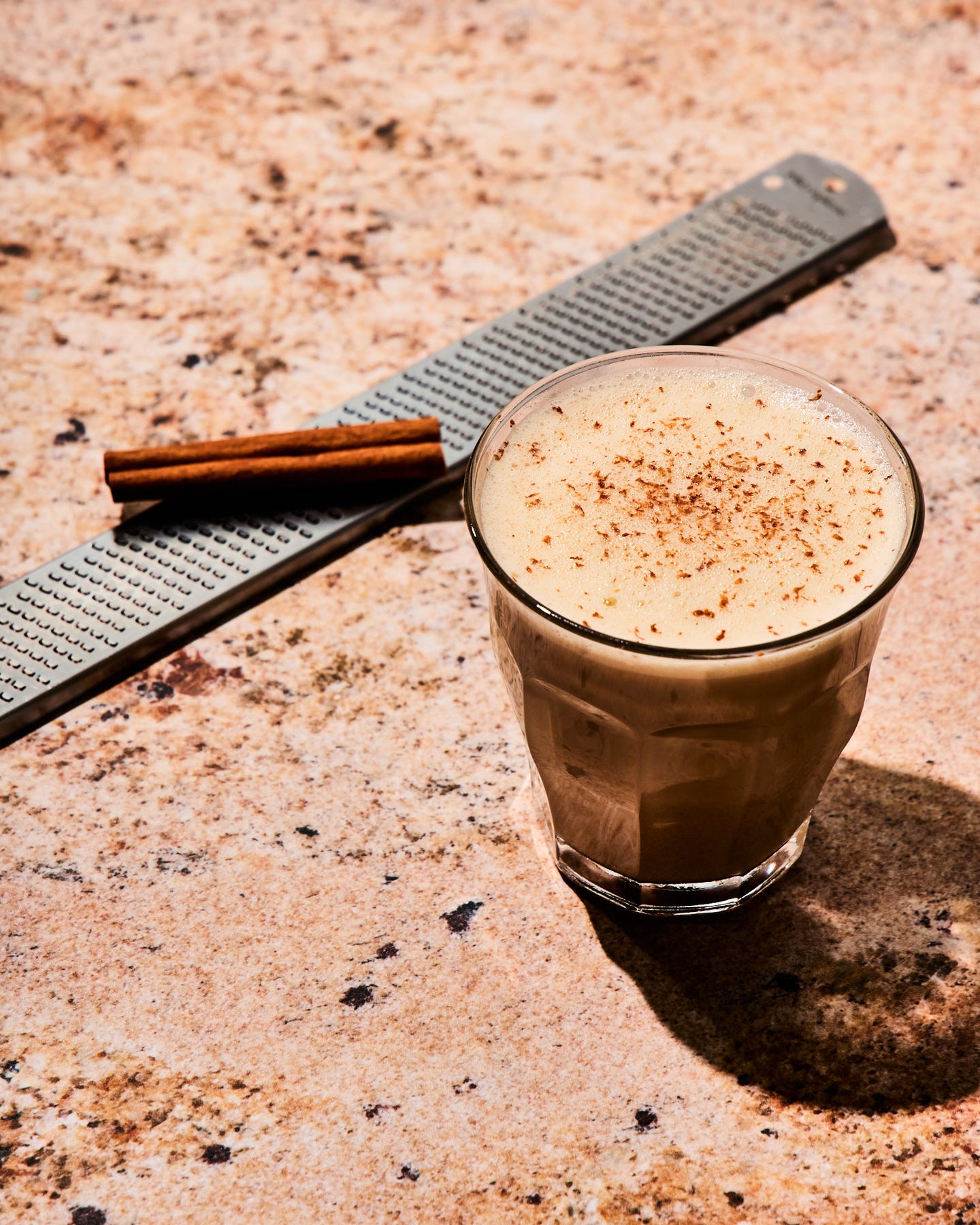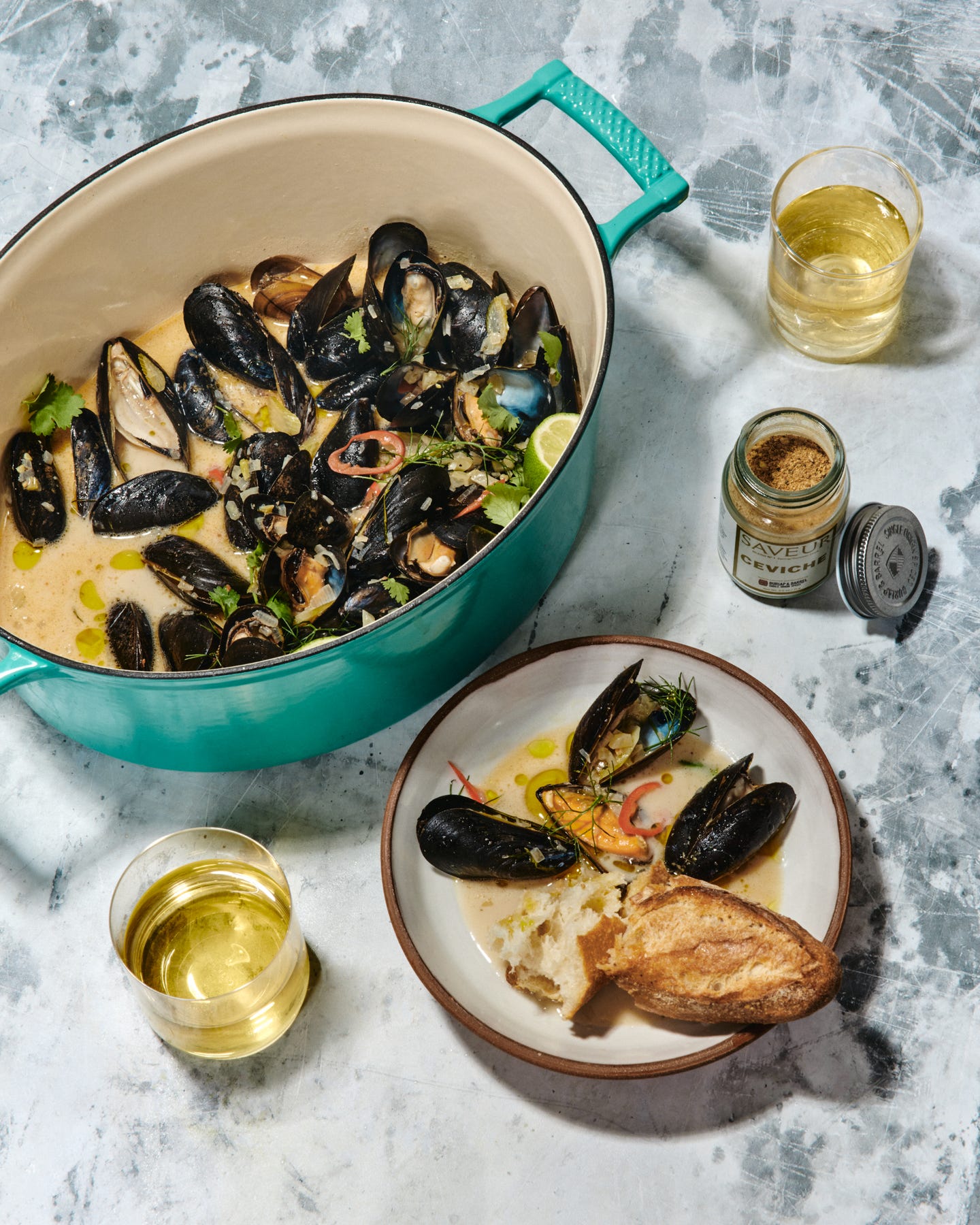
Dispelling the Myths of Southern Food With John T. Edge
The author of The Potlikker Papers discusses paying down a debt to the black and immigrant cooks of the South, and what it means to be an active Southerner
John T. Edge is wickedly smart and an intent listener. And when he laughs, he snorts. Anyone who's met him can tell you these things. Because, in equal measure, John T. is deeply invested in his subject matter—the South—but he also understands that it's something to be shared, mused over, and reframed through conversation (and perhaps over a couple of drinks). The director of the Southern Foodways Alliance, a celebrated journalist, a barbecue nerd, and the author of the forthcoming The Potlikker Papers, John T. has created a canon of Southern food writing that follows in the tradition of legends like John Egerton and Vertamae Grosvenor. The Potlikker Papers is an extension of this cultural plumbing of the South and its meaning in modern America.
"Definitions of the South typically depend on geography or secession," he writes. "The adjective Southern and the noun Southerner have, since the nineteenth century, referenced the white South and the Confederate South." In The Potlikker Papers, he asserts these delineations are a failure. Rather, the South is a place full of sound and color, wealth and poverty, horror and beauty. It's a place where history has been erased or veiled in favor of easy narratives—"Moonlight and Magnolias" as Edge says. His latest book is an attempt to rectify that history, to reveal the full breadth of the South's negligence, intelligence, and legacy.
John T. Edge, journalist, director of the Southern Foodways Alliance, and author of The Potlikker Papers.
Beginning with the Civil Rights Movement, moving through the "folk" period (Back to the Land, Edna Lewis, and the commodification of fried chicken) onto the artisanal South movement, the glorification of barbecue, and the introduction of a new kind of Southerner—21st-century immigrants—Edge paints a portrait of the South that is sweeping and balanced. He gives names, first and last, to the forgotten cooks of lauded soul food establishments and poverty-stricken families of the Delta that galvanized Robert F. Kennedy.
Ultimately, Edge asks us to consider how we, as Americans, active and passive Southerners, journalists, and eaters, can begin to set the record straight in this very moment—to tell the histories of those living and working in the South with truth and humanity. To recognize them and say their names.
How did you first pitch this book?
I rewrote the proposal for this book four times. At first I thought I wanted to do a book that was post-Civil War, but then I realized the struggle that defines my South was the Civil Rights Movement, not the Civil War. That's the tipping point. That's the beginning of the South that I embrace. It's the beginning of the South that is forward-thinking instead of backward-looking. It's the South that inspires me. That was when I figured out I could write a that started with Georgia Gilmore and the Montgomery bus boycotts.
Was there a point where you felt like it was the right time to start? You've been writing about the South for a long time, but is now is particularly apt moment to publish it?
I would like to say that I could have anticipated where we are now, but for me the real impetus was the passing of John Egerton, who was my mentor in so many things. He wrote beautifully about many subjects, but his two big books were Speak Now Against the Day about the generation before the Civil Rights Movement in the South, and Southern Food. When he passed [in 2013] and when his family asked me to be one of the speakers at his celebration of life, I felt not a burden but a responsibility to his work and to what I believed I was doing with my own. Writing magazine pieces for the Oxford American, or newspaper columns for The New York Times, or more recently pieces for Garden & Gun, or the piece about barbecue that I did for y'all, you can see glimpses of how I mean to write about food.
But they're not fully realized. It's not a persistent narrative. There are moments in time that I think matter and should be stitched together in a narrative arc. Trying to make sense of this was really what this book project was about. Why am I obsessed with Southern food if in reality what I'm obsessed with is the South's tragic history and the imprint of racism on this region? Why do I write about food if that's what's really in the back of my head? Part of this book for me was trying to figure that out. Is it possible to sustain that notion for 400 pages? That was one of the questions I wanted to ask myself.
What do you think? What's the answer?
I know I could sustain it for 700 pages because that's how much I wrote and then cut down.
Can you tell me a little bit about how you and John Egerton met? You mention him throughout the book. How did he inform your writing of it?
We'd met earlier, but first time we had a real conversation was when I visited him in his house. I was in his office, the bathroom of which was papered with rejection notices from all the places he had tried to pitch and failed. He went into that bathroom and I stayed in the office, and was running my finger down the spines of his books. Tracing his research and seeing new possibilities for mine.
He called me on it. He comes out of the bathroom and basically calls me on it. Through the years of our friendship—20 years—he told that story again and again. He embellished it as time went on, but the notion that I was borrowing from him and was, in some small way in a league with him, is the greatest compliment I could receive.
I'm trying in my own way to make good on the promise of his own book. He set out with Southern Food to tell a full story of Southern food culture, to include the people who are normally left out, to use both the first name and last name of the black cook that sustained the white family. And that effort emboldened me and emboldened a whole generation of people about food. In writing this book, I'm trying to pay tribute to his work, I'm trying to advance it in a way. I've worked with a term in the book and it's one I keep returning to because it resonates in my head: We have to pay down a debt of pleasure that we owe to all the unnamed farmers and cooks who have put food on our table, who have served the South, who have sustained the South.
Paying down that debt of pleasure as a writer—that's the greatest thing you can do, celebrate the life and legacy of someone whom others might have overlooked. I'm not saying I'm the only one paying attention but I am saying that I intend to tell this kind of people's history; and I intend to tell a history with cuss words. I intend to tell a history that doesn't ghettoize food.

Tell me a little bit about the debt of pleasure, what that means to you.
I grew up about a quarter mile from a barbecue joint in Georgia. I'd go to this place called Old Clinton Barbecue. I realize as I go along I love that place, I idolize that place. I know the names of the family that owned it, the Coulters. I knew Ms. Coulter, I can describe to a T what she looked like. I can't tell you who the men were who actually cooked that food. Black men who lived in my own community, who fixed that taste of barbecue on my palate. I don't know who they were.
But I have the ability—by way of my academic training and my skills as a writer—to unearth the first and last names of those people. Their backstories, their hopes, and beliefs, and fears. I think of the boldness of Fannie Lou Hamer to speak truth to power. I think of Booker Wright in the same way, and Booker Wright wasn't singular. His moment beneath the lights was singular. His moment on TV was singular, but his life—others lived it, others dared to speak, others paid the price.
They were the servant class of the South and they sustained the South. They sustained the white South and we don't know their stories. I try to tell a few. There are a lot more to be told. A rush of people is at work on that now and I'm proud of that, and I'm proud to be some small part of that.
Let's talk about the chapter "Landed Hippies." I think people in general think about the Back to the Land movement as being a very West Coast thing. To have read that chapter was to realize that a huge contingent of farmers, and hippies, and people were taking back land and moving to the South. I had no idea that that was true.
Within a few years, everybody was quitting the South. It was a place to get out of. It was a hive of racism and hate, and yet, here come these hippies claiming the South.
I've been thinking about another term too, this idea of "active Southerners" and "passive Southerners." Immigrants are active Southerners and those hippies were active Southerners. They saw potential, they saw themselves in that place and actively claimed it. They said, "No we see value in what the old moonshiner knows. We see value in what the pump windmill operator knows. We see value in the same way as the Foxfire journalist kids saw value in their forbearers." That was bold, and you don't think about the South as an incubator of free thought, as an incubator of radical Back to the Land experiments. The most successful, arguably, Back to the Land experiment of that era just outside of Nashville.
Do you think that there are some parallels with back then and what's going on today? Post-Katrina all of these creative white people moving to New Orleans, people moving to Houston. Do you see any connection between those two moments?
If you think about the Back to the Land movement as one when kids who went to Brown or Princeton were discovering folk music and blues—coming to the South to sit at the foot of an aged bluesman to learn. Now they come South to sit at the foot of a fried chicken cook or a barbecue pit master. They come South for an audience with the sisters at Bertha's Café in Charleston. Yeah I see parallels in that, in young people valorizing the work of a previous generation, seeing it anew and traveling, quitting the places they grew up to reinvent themselves in a land they think of as somehow more true, more authentic.
This brings up another question, which is one you've written about alongside Tunde Wey. Who owns Southern food?
We did a summit recently and a number of essays have come out of that, and they'll continue on NPR. One of the conclusions we came to—I can't say everybody came to this conclusion—was that it isn't about ownership: it's about equity and capital. There aren't that many black-owned restaurants interpreting the foods of black people, so if there weren't issues of capital and there weren't issues of equity for black chefs I think we'd be asking better questions.
Do you think that your book is an attempt to start giving equity? Not literally, but in the sense of sharing the names people need to hear?
I don't think I'm giving anybody anything. What I hope I've done is frame a South that is true. It's one of the reasons I wanted to write a chapter about myth and the Southern fad of the Carter years, and all the myths that are spread about the South. Those are dangerous myths and they have served the South for ill mostly, but the Colonel Sanders kind of myth sells well. A correction is needed, truth telling is needed. A future-tense South is at hand now. If we can clear away the thicket of nostalgia, we'll see it's already a font of multicultural expression. Let's get this right now.
The Potlikker Papers is available for pre-order now, and will be published on May 16th.
Keep Reading
Continue to Next Story



